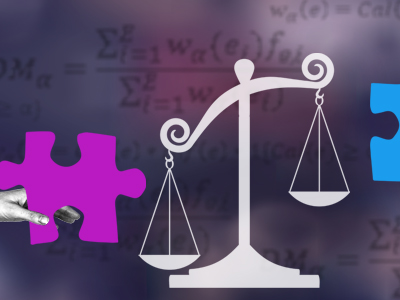Overview
Learn how to analyze and structure complex socio-technical problems and how to manage uncertainty. Discover how to use problem structuring as a key element in dealing with societal challenges and socio-technical problems and how it helps to avoid implementation of wrong solutions.
Successful problem solving requires finding the right solution to the right problem. But how do you structure complex or wicked problems? Analysts confronted with complex situations must first actively explore the problem and its context to formulate an approach.
In this MOOC, you will learn how to go from a ‘poor’ to a ‘rich’ problem description. You will use tools and approaches of problem structuring, that help you create a clear picture of complex situations and to support, policy, regulatory and governance decisions.
You will focus on instruments such as problem demarcation, multi-actor analysis (including a values perspective), system analysis and ways to identify and to deal with deep uncertainty. You will also learn why an iterative process is always necessary.
The focus in this MOOC is on so-called ‘socio-technical systems’. It means that both social and technical complexity have to be considered and that these are interdependent. Just think about energy transition, climate change, Covid pandemic, the health sector, water governance, or sustainable cities. In all these cases, multiple actors with conflicting interests and values have to be considered (and add views that change over time), including fast technical developments, institutional fragmentation and uncertainties.
Warning: after this course you will embrace complexity!
What You'll Learn
By the end of this course, you should be able to:
- Identify the characteristics of complex problems and socio-technical systems (multiple stakeholders, technical complexity, interdependencies, emergent behaviour tipping points, etc.)
- Structure such problems in an iterative way by means of different instruments and approaches (problem demarcation, actor analysis, means-end analysis, systems diagrams)
- Analyze uncertainty and include this in the problem structuring process
- Apply complex problem structuring to a variety of case studies
Details
Course Syllabus
Module 1: Understanding complex socio-technical problems and the implications for problem structuring
Module 2: Problem structuring and means-end analysis
Module 3: Multi-actor analysis
Module 4: Systems diagrams and boundaries
Module 5: Unlocking the future: identifying and managing uncertainty
Qualifications
Chartered Engineering Competences
All our online courses and programs have been matched to the competences determined by KIVI’s Competence Structure, a common frame of reference for everyone, across all disciplines, levels and roles.
These competences apply to this course:
- A1: Extend your theoretical knowledge of new and advancing technologies.
- D1: Identify all stakeholders and communicate with others at all levels.
Admission
This is a Massive Open Online Course (MOOC) that runs on edX.
Prerequisites:
Basic understanding of problem-solving techniques and analytical skills.

